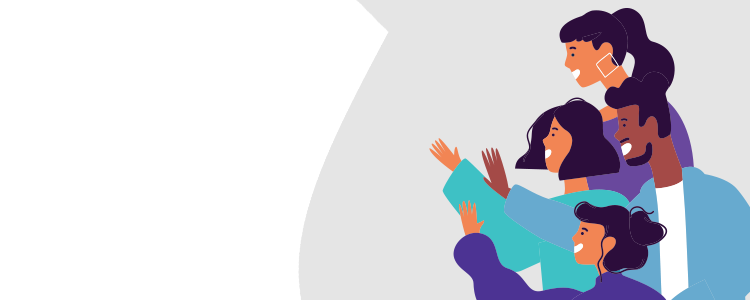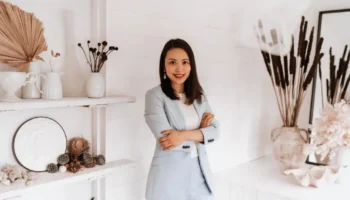Having worked at The Dream Collective for almost 4 years now, I have been fortunate enough to witness some incredible cases of personal & organisational transformation, particularly in Japan where the issue of gender inequality is such a deeply rooted, cultural challenge.
It’s an absolute honour to be able to play a part – large or small – in an issue that is far bigger than the workplace by continuing to re-imagine what inclusion looks like.
I haven’t always been passionate about gender equality though. I grew up in a small city in the north of Australia & my first 2 jobs were in frontline retail, where gender was never really discussed or thought about.
That article.
Since landing my first role in a white-collar profession, however, there have been several turning points that have moved me from feeling indifferent to deeply passionate. Most notable was an article in a reputable newspaper that featured our Managing Director discussing the prevalence of ‘diversity fatigue’ globally.
95% of the 300+ comments in response to the article, were deeply against diversity & inclusion and demonstrated a lack of awareness or willingness to learn about the empirical evidence that exists about the issue. For example:
Donald T: “I think we will find in the end that diversity actually destroys culture. and society in general.”
Michael: “Diversity fatigue – well why don’t you park the issue. I’m in engineering and the diversity propaganda is what you’d expect in a communist country. Feminism will be seen for what is – one day soon I hope!”
Guy: “Good grief this utter rubbish again… Unconscious bias is a complete fallacy, yet these leftists continually push it but never present any evidence of it.”
Bruce: “When I was hiring the only attribute that was worth anything was MERIT, full stop. All the rest of this is just rubbish.”
Daisy: “Remember the old days when the concreters were Italian, the fish and chip shop workers were Greek and the pastry chefs were Jewish? We all got along just fine, it seems nowadays that one has a duty to be offended in the face of such segregation.”
In reading these comments, it only dawned on me then: If this small cross-section of men (and a tiny handful of women) from seemingly privileged positions & backgrounds (they often stated these in their comments for context) were disputing decades of research – simply because it wasn’t their reality – therein lies a huge issue that needs tackling.*
*(No, I’m not going to share more research as to why diversity & inclusion is crucial to business success. There is a tonne of information & research that exists already & my colleague, Yolanda, has done a great job in summarising some key points here: “Executives, can you hear me?”.)
It sounds crazy, doesn’t it? A group of individuals arguing that the absence of something in their world, is proof to them that it doesn’t exist?
It served as a really interesting window into the world of people who sit in the majority & who have likely never had to think about their identity or privilege before.
I get it. That was me too prior to starting at The Dream Collective & witnessing the everyday biases that creep into corporate culture, social interaction & our opinions.
It made me wonder: How can diversity and inclusion permeate well beyond the businesses that are already committed and reach the people, organisations and industries that hold incredible power, privilege & responsibility, that aren’t yet engaged in the subject?**
**(My guess is that their companies aren’t sitting in the top quartile of companies who are 25 per cent more likely to have above-average profitability thanks to that diversity & inclusion ‘rubbish’…)
The answer to this is a work in progress and a challenge we’re eager to solve.
The challenge now as business leaders is this: how can we progress the dialogue from one that is largely apathetic to that of accountability?
In order to see real change in workplace gender equality, 3 critical things need to happen first:
- Re-evaluate how we see both men and women in society
- Be cognizant of our biases and how these play out in our everyday actions
- Bring to balance the distribution of power and responsibility at work and home
Together, We.
One such example of how we are doing this, with the support of our partners in Japan, is our 2020 book that was launched in Japan, ‘Together, She Shines Brighter’, a series of stories from business leaders, discussing how they empowered, championed and supported women in their organisations to thrive through advancement, sponsorship & training. It’s an amazing book with stories from senior leaders at adidas, Suntory, Novartis, Cooper Vision, Starbucks, LVMH & Lixil (to name only a few), all of whom deeply believe in the mission of reframing what women’s role in society & the workplace should look like. If you can read Japanese & would like to purchase a copy, you can do so via the link above.
A book is timeless and something you can keep forever. It’s far less fleeting than a campaign and that’s exactly the intention of choosing this medium. The hope is that this beautiful book of stories will inspire the next few generations of female leaders & be passed down amongst friends & family. and that through this, women’s roles at work and in society, will slowly start to evolve.
Being a part of The Dream Collective, we see both sides of the D&I coin. We see the inspiring, the impact & intent but we also see the reality of how apathy plays out & the very real impact that it has on people.
And if it’s not important to you, I question, why? I’m genuinely curious & would love a judgement-free chat with you.
Till then, stay kind & curious.
The book will be a staple in our Japan initiatives, and in fact, we will be launching our 2nd edition on International Women’s Day 2021. If your business would like to be a part of the movement & demonstrate your commitment to gender equality, we welcome you to get in touch here.

Written by Lyndal Hamwood, Senior Marketing Manager at The Dream Collective







